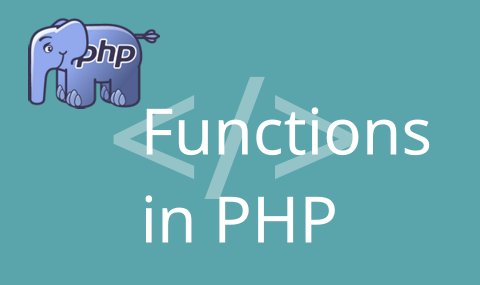
Functions in PHP or in any other programming language is a block of statements that are written to perform a specific task.
– Functions once defined can be used again and again with in a program
– Functions do not execute automatically whenever a page loads.
– A function call is needed to execute a function.
There are mainly two types of functions in any programming language –
Built-in functions
Built-in functions are already defined within the programming languages and can be used anywhere in the script. PHP has over 1000 built-in functions.
User-defined functions
Like any other programming, PHP allows you to define your own customised functions based on your requirement. Such functions are known as user-defined functions.
Creating functions in PHP
While creating a function in PHP, following rules must be followed –
– Functions declaration starts with keyword “function”
– Function name must start with a letter or an underscore only.
– Function name are NOT case-sensitive in PHP
SYNTAX
Example –
Output
Welcome to Coding Lessons
In the above example, we’ve created a function name welcomeMsg. The above declared function is then called using weclomeMsg(); statement.
Functions with arguments in PHP
Arguments are used to pass values or data to the functions. Arguments are like variables, they can be used inside the functions –
Arguments are mentioned inside the parenthesis after the function name. A function can have multiple elements, the elements needs to be separated by comma.
In the above function firstName, we’ve an argument $fname, in which we’re passing different names. So in the output the last-name will remain same with different first names.
Also Read – IF Statement in PHP
